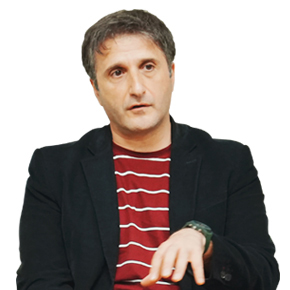I know this column will cause disapproval or surprise among many of my colleagues. Frankly speaking, I am not worried, because there are just a handful of real professionals left in the media and their opinions are the only ones I care to know.
After the Armenian government declared a state of emergency, the heads of a number of media outlets and media organizations issued statements, complaining about some of the imposed restrictions. I agree with many points they made. In particular, the rule about media publications that “can cause panic” is not only surprising, but also vulnerable. There are as many perceptions of panic as there are people, so the “ability to cause panic” is impossible to measure or define. Why couldn’t the Commandant’s Office establish a rule about “false information”? I also consider it nonsensical when police officers decide which publication causes panic and mandate the media or individual to remove it.
The issue was noticed by OSCE Representative on Freedom of the Media Harlem Désir on March 24. In particular, he said that “publishing only information provided by the authorities is a very restrictive measure”. I would like to highlight another quote as well, which I find of key importance:
“The media has a crucial role to play in providing important information to the public and to counter ‘fake news’.”
Harlem Désir is a Frenchman, former member of the French government. When he says that the media plays a crucial role in countering fake news, he considers the French experience, which includes media outlets that have established themselves over the years and became the real fourth power as well as websites that only care about generating views and clicks by posting fake or confusing information.
The latter is not the case for Le Monde, Le Figaro or Liberation. Of course, there are also periodicals like Charlie Hebdo, which have respect for nothing and find it okay to mock the victims of terror attack. However, everybody knows what Charlie Hebdo is about and each person makes the moral choice of buying or not buying it.
Now, let’s answer truthfully the following question: what are Armenian Le Monde’s, Le Figaro’s and Liberation’s? We can name a few such outlets with difficulty, and even those we trust in general, not unconditionally. There will be no difficulties with naming Armenian analogues of Charlie Hebdo. We know dozens of such outlets, and the only difference is that they post not caricatures (which require at least talent, if nothing else) but falsehood, gossip and absurdities.
So, when I look at the signatures under yet another joint statement and see the name of someone heading a media outlet that posts false or at least unverified news every day, it seems that it is not that they want to provide coronavirus-related information from alternative sources, it is that their routine as scribblers is being hindered. That is where Harlem Désir’s formula does not work, because in this case the media does not combat fake news – it spreads them.
When the situation is back to normal, I believe that the government, media companies and responsible journalists should resume the discussion of the regulation topic and try to find solutions. Regulation of the media is one of the most sensitive topics worldwide because the line between regulation and control or censure is very thin. But it is possible to draw that line through joint efforts. The current situation is that Mediamax with its 21-year history and good reputation stands in the same plain as a month-old outlet spreading fake news. I am no longer able to put up with that. Freedom of speech cannot be equaled to impunity any longer. Freedom of speech is a right that should be earned and kept as a sacred object, but our “pseudo-media” seem to think “freedom of speech” means they can approach anyone in the street and, figuratively speaking, spit in their face, and then shout they are being repressed when that someone counteracts.
Ara Tadevosyan is Director of Mediamax.

















